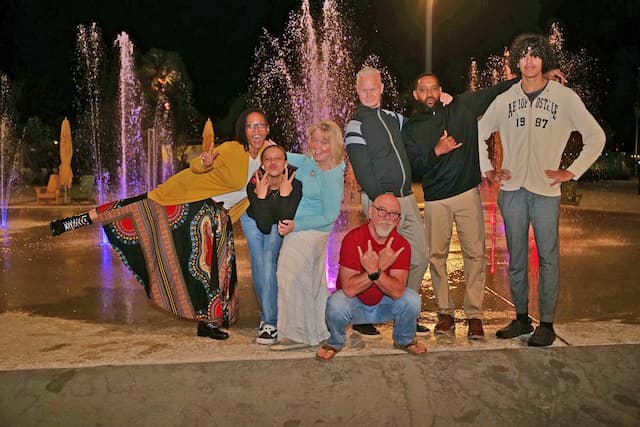Building From Blind Spots: Jonathan Edwards and Slavery
At the end of each year, I like to think through priorities, goals, and habits as I prepare for the upcoming year. Over the years, I've stumbled over articles and sermons about Jonathan Edwards's Resolutions. Written when he was approaching his twentieth birthday, these resolutions reflect areas of focus and spiritual growth for young Edwards. As a young-ish guy (I'm 33rd birthday!) I want to be "making the best use of the time because the days are evil" (Ephesians 5:16), so I decided to embark on a more thorough study of Edwards's lifestyle and resolutions. In God's providence, I stumbled upon Matthew Everhard's Holy Living: Jonathan Edwards’s Seventy Resolutions for Living the Christian Life. Everhard is a pastor with a popular Youtube channel detailing his study methods, reviewing Christian resources, and sharing information from his scholarly studies on the life and ministry of Jonathan Edwards.
A Bit of Tension
As a black Christian in America—and yes, my Christian identity trumps my racial identity—I often wrestle with the tension of early American Christianity and slavery. There is clearly nothing deficient about the gospel or biblical ethics. Unfortunately, the rich theology proclaimed in Christian books and sermons from that era didn't always move from head to heart to hand—especially when those hands held slaves. Sadly, Great Awakening heroes like Jonathan Edwards and George Whitefield were guilty of supporting slavery either vocally or silently through their actions. I'm not trying to spark the discussion of how slaves were treated by Christian slaveholders, whether they were just products of their time, or if these men were genuine Christians. These are complex discussions that ought not be handled lightly via social media or blogs. For what it's worth, I hope to see both of these men in heaven worshipping the Lord alongside Africans and people from every other tribe, tongue, and nation (Revelation 7:9).
In Holy Living, Everhard doesn't shy away from this tension of slavery in Jonathan Edwards's life. In fact, he mentions it a couple of times in the opening chapter. I want to zoom in on one specific section where we see Edwards's disciples build upon his blind spots:
"Following his death, Edwards’s legacy continued to rise sharply. His disciples carried on some of his ideas, applying them more courageously than he had in areas of social concern, especially his concept of “benevolence to being in general, ”which meant a love for God and humanity. His son Jonathan Edwards Jr. and his disciple Samuel Hopkins applied their concept of “disinterested benevolence” to race relations and slavery, working toward the abolition of that horrific institution. Like their mentor, they were way ahead of their time. (p. 15; emphasis mine)"
Not Far Enough
Jonathan Edwards thought and wrote deeply on the concept of Christian love and the fruits it bears in the lives of believers. He also taught that all people were created in the image of God—even African slaves. He wrote of the "benevolence of being in general" which emphasized first love for God and then love for other people. Though this teaching didn't shift his practice of slaveholding, it did move and his congregation to receive black and Native American members into their congregation. He would eventually give his life to mission work among Native Americans before passing away from a smallpox inoculation. Though his views and action regarding race and slavery were likely countercultural for his day, we know that Edwards didn't go far enough in renouncing slavery and racism in word or deed. He failed. His whole life wasn't a failure, but he failed to defend the image of God in people who didn't look like him. Like Peter's ethnoreligious blunder in Galatians 2, we could easily say that Edwards's action was "out of step with the gospel" (Galatians 2:14). Perhaps this was a blind spot that was obvious to many in his day and nearly everyone today.
In God's remarkable providence, Jonathan Edwards was an abolitionist—Jonathan Edwards Jr, that is. At least with regard to Edwards's doctrine of benevolence, Jonathan (the younger) and Samuel Hopkins applied the rich theology of their mentor in order to fight against "that horrific institution" called slavery. I imagine young Jonathan looking at Venus, on of the family's slaves, with confusion and perhaps pain in his heart. Perhaps he had wondered why his father taught of benevolence toward all while keeping Venus locked away like a caged bird. Maybe he looked at the society around him and grieved at the atrocities faced by millions of Africans simply used as domestic and agricultural machinery by wealthy Americans. This, of course, is mere speculation. But it is clear that Edwards Jr. was driven by his inherited theology to fight against the ills of racism and slavery.
God is Gracious When We Can't See
Where does this leave us today? I can't speak for others, but I am willing to learn from Jonathan Edwards's life and ministry. I'm willing to learn from both his successes and diligence as well as his frustrations and failures. I'm becoming more willing to bear with the blind spots and folly of pastors and scholars today, too. This doesn't mean that we shouldn't acknowledge sin and unwise action where we see it. It definitely doesn't mean compromising sound doctrine in order to fit in with today's culture. Rather, I want to be more willing to see the good in someone's life and teaching despite being blind in areas that are easy to see.
Most importantly, I'm reminded that I have my own blind spots. If King Solomon could be blinded by luxurious living and numerous wives, how can I expect to get everything right? If Jonathan Edwards kept most of his seventy resolutions but turned a blind eye to slavery, will the blue light from tiny screens blind me to the distraction and debauchery of our day? If those men can fail, so can I. But there is grace for those who stumble. It is God alone who can keep me from stumbling. He alone can prevent my spiritual legacy from being tarnished by my blind spots and weaknesses. God is light and in Him alone is there no darkness at all.
For more information on Jonathan Edwards and the complex issues of race, see Matthew Everhard's Article "Jonathan Edwards’ Complex Views on Race"
Affilliate Disclosure: I sometimes use affiliate links in my content. This comes at no cost to you and helps me keep writing. Thanks for your continued support!
Image Credit: Photo by lalesh aldarwish from Pexels










